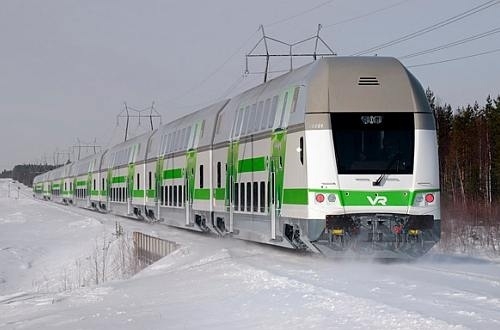Berner says her ministry is now looking to "find the most viable model for Finnish conditions," and proposals for a new structure will be revealed in Spring 2016 which will seek to clarify the roles of different players in the sector.
"An open market is needed to provide customer-orientated services with supply meeting demand," says Berner.
"Without competition there is currently no means of assessing the cost-effectiveness of rail transport and quality.The opening of the rail market to competition means that VR's exclusive rights will be terminated and other actors will be able to enter the sector."
Berner also dismissed reports in the Finnish media that the government is planning to privatise VR Group. "This does not mean the privatisation of VR - the state is not giving up VR's ownership."
VR Group's current contract with the Ministry of Transport and Communications, which guarantees exclusive rights to operate profitable inter-city routes in return for provision of public service obligation (PSO) services is due to expire in 2024. Berner says a re-examination of existing contracts with VR Group and negotiation of compensation payments will be required to achieve liberalisation before this date.
Last month the government signed a four-year deal with VR Group for the operation of PSO services which includes service cuts on some lightly-used routes.
Helsinki Regional Transport (HKL) plans to introduce competitive tendering of suburban services in the capital when the current deal with VR Group, which was signed earlier this year, expires in 2021.
Domestic railfreight was liberalised in 2007 and the first open-access operator, Fennia Rail, plans to start operating at the end of this year.

